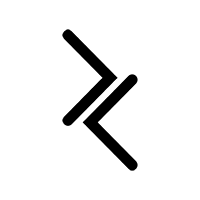Well, it finally happened.
A few days ago, the prestigious Sony World Photography Awards was held, and Boris Eldgasen, a German photo media artist, won the award in the single category of "Creative".
Normally, this would be pretty normal news. However, he won that category with his image that was AI-generated.

As you can imagine, that generated lots of controversies and shortly after winning the award, he released a statement about refusing the acceptance of the award on his blog, as well as performing a Kanye West-style interruption to talk briefly about his AI work being swept under the rug by the judges at the actual awards ceremony itself.
For more context, his statement reads:
"Thank you for selecting my image and making this a historic moment, as it is the first AI generated image to win in a prestigous international PHOTOGRAPHY competition.
How many of you knew or suspected that it was AI generated? Something about this doesn’t feel right, does it?
AI images and photography should not compete with each other in an award like this. They are different entities. AI is not photography. Therefore I will not accept the award.
I applied as a cheeky monkey, to find out, if the competitions are prepared for AI images to enter. They are not.
We, the photo world, need an open discussion. A discussion about what we want to consider photography and what not. Is the umbrella of photography large enough to invite AI images to enter – or would this be a mistake?
With my refusal of the award I hope to speed up this debate."
I first read about this on PetaPixel, and I highly encourage you to go and read that article for the rest of the drama.
For my take on this, while I personally don't agree with entering a photography competition with an AI-generated image under the guise of it being an actual photograph, there is also something interesting and perhaps even slightly noble about doing it from the perspective of trying to start a conversation about whether the industry is ready for this kind of change or not, because honestly, and quite predictably, it's not.
But in the judge's and SWPA's defence, how could they be? This technology is progressing way faster than most individual people can even comprehend, let alone for a big company or organisation to respond to and have processes for, so I don't blame them for keeping silent on the entire matter even up till this point because, quite frankly, what is there to say that is going to appease everyone in this situation? The organisation is stuck between a rock and a hard place, and I'm sure the judges and even anyone who has caught wind of the news is still coming to terms with how disruptive AI is going to be to our industry at large and what's going to happen next.
I think the most interesting thing about all of this is the spark that it provides when thinking about what an image or a photograph is.
Eldgasen, the aforementioned winner, mentioned that his submission was an "image". Not a photograph. A semantic that is not to be missed because, in the general zeitgeist, visual pieces of art; pictures, images, and photographs, often can be called and often are referred to as the same thing.
But a photograph is usually an image, but an image might not be a photograph. A photograph, in the purest sense, is an image made using a camera. That's the difference. An image can be made from anything; a drawing, an illustration, a still from a video, or something generated by AI, but they are not photographs, and I think we, as humans consuming media like this every single day, tend to forget that.
This distinction is very important because for all of those photographers out there freaking out about how their jobs are going to be displaced, this is exactly how it's going to happen.
People have many uses for images. Think of anything stock photography has a use for. Photography for ads, illustrative purposes, as an aid to educate. These types of images have a utility to them, and it's usually to some kind of commercial end. If you're in this kind of photography business in the future, you're probably going to lose your job to AI. If you're doing photoshoots to sell a product, shooting models to make advertisements, or need to create a visual piece with a human element to seem relatable, even today, right now, with the newest version of Midjourney, you can do all of that.
One only needs to look at a brand like Levi's, which recently replaced its models with AI, to see where this is going.
However, if you're in the profession of using your photography for the purposes of inspiring people to travel to a destination because humans trust other humans more than they trust computers, or you use your photography as a means to capture experiences, make memories, and immortalise moments, or any other way that translates the human experience into the art of photography, then your job is safe. Probably.
That's why this is important. When you think about photography and AI in the future, consider the intent of the image. Does it have commercial utility or something in that vein? Or is it about human expression or experience? Because the former is going to be replaced by AI for sure, and the latter, we can hold on to for a little longer.
Thank you to Boris Eldgasen for starting this conversation in this way, and I'll leave you with that thought for now. More thoughts on AI and the future of our industry to come.
See you next week, creative.


